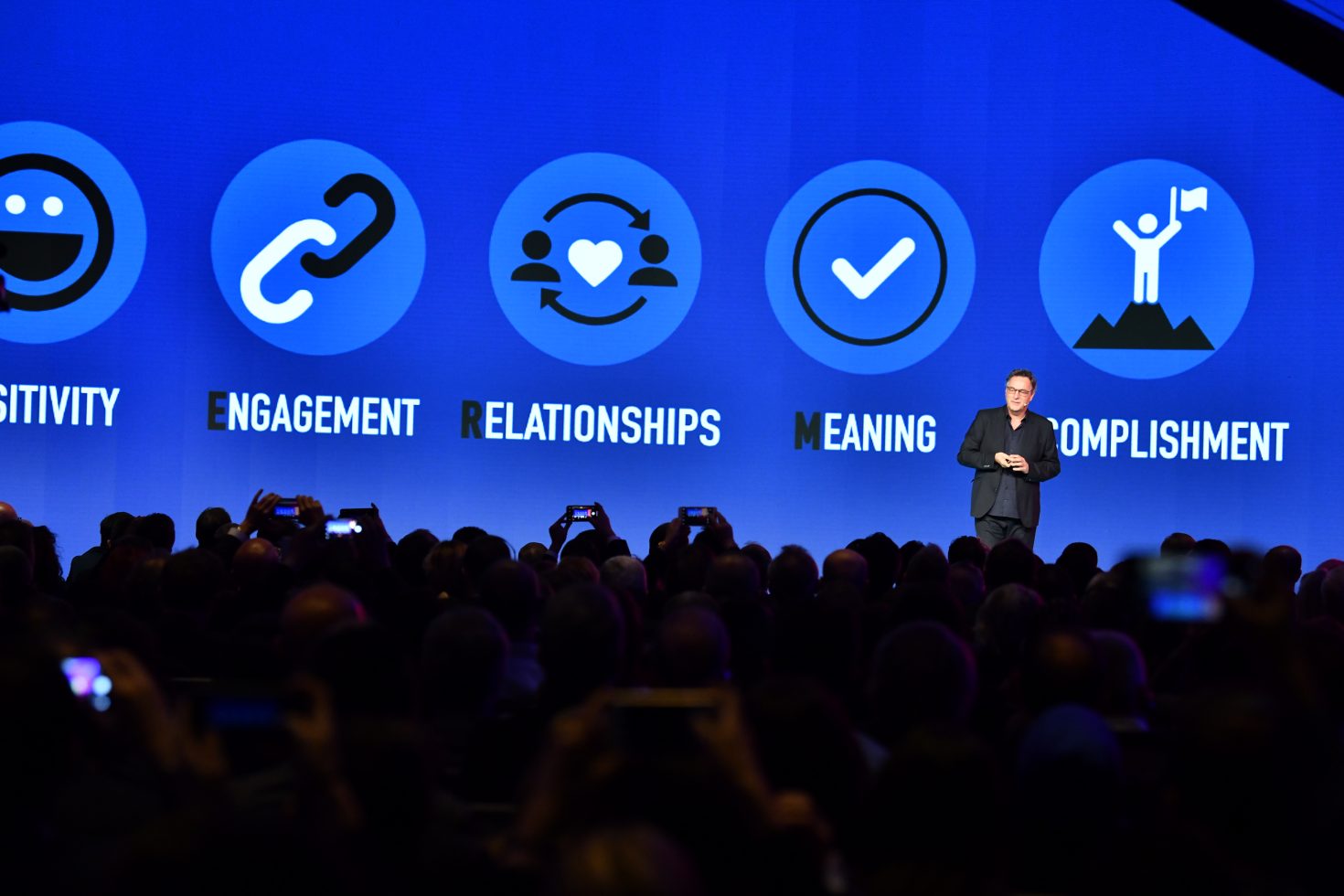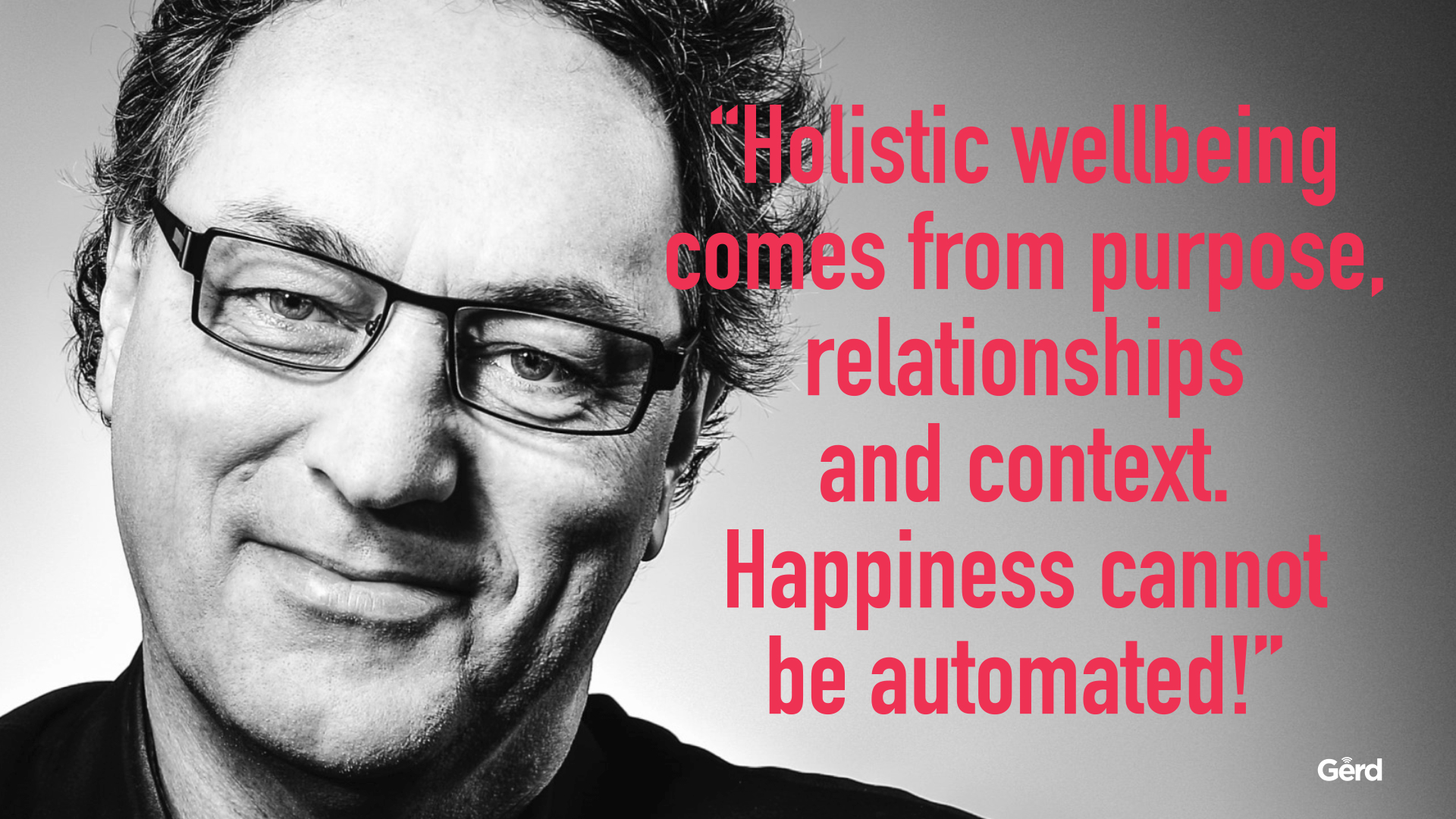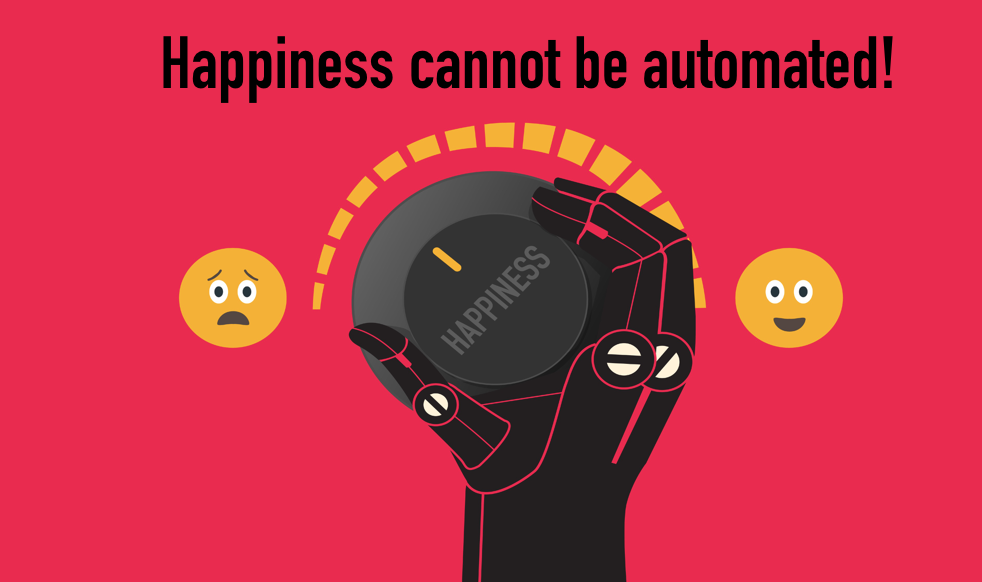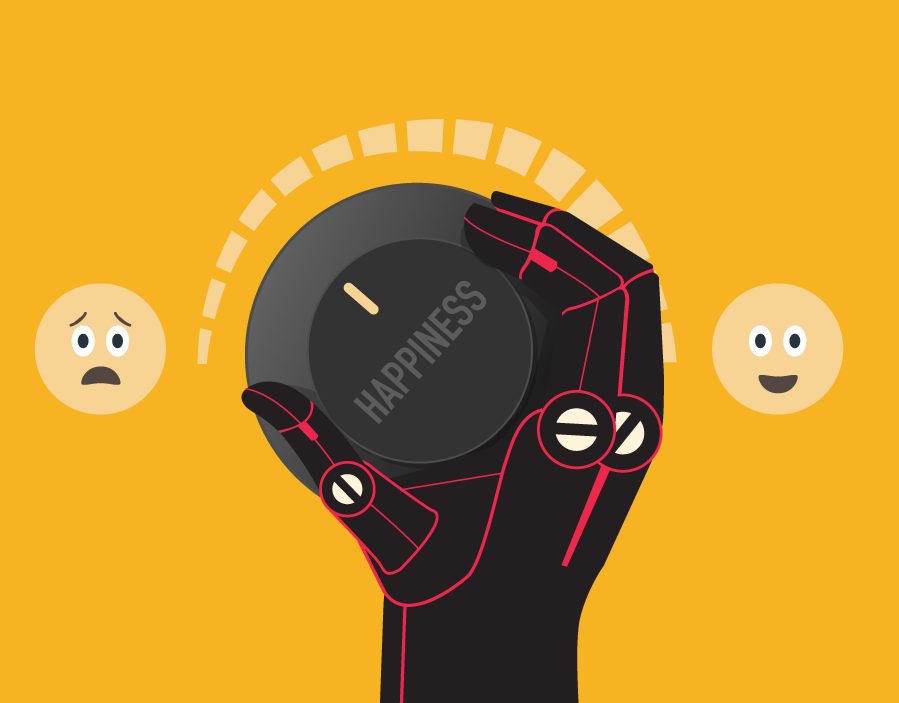Is happiness programmable? Can technology further lasting human happiness? What is the difference between hedonism (short happiness bursts) and eudaemonia (lasting, deeper happiness)? In this podcast, my curator Peter Van and I discuss Chapter 9 from my book Tecnologia vs. Humanidade, em HAPPINESS.
Descarregar o MP3: gerd leonhard peter van chapter 9 technology humanity MP3
Pode encontrar mais podcasts aqui, ou subscrever os podcasts do Gerd em Spotify, iTunes ou Soundcloud.
Some quotes from the book:
As big tech simulates quick hits of hedonistic pleasure, how can we protect the deeper forms of happiness that involve empathy, compassion, and consciousness ?
Happiness, gladness, or joy is a mental or emotional state of well-being defined by positive or pleasant emotions ranging from contentment to intense joy.
“The first, hedonic happiness, is a positive mental high point, usually temporary, and often described as pleasure. It may be fleeting, it may be momentary, and it often leads us into habits. For example, some of our hedonic pleasures can lead to addictions such as food, alcohol, and smoking. Social networks such as Facebook have often been described as a “pleasure trap,” a mechanism for hedonistic self-presentation and pleasure facilitation. The second type of happiness is known as eudaimonic happiness, a kind of deeper happiness and contentment. Wikipedia explains eudaimonia (or the Anglicized version, eudaemonia, which I will use in this book) as follows: “ Eudaimonia is a Greek word commonly translated as happiness or welfare.” “Human flourishing” is another popular meaning of eudaemonia and may serve as a more accurate terminology for the purpose of this book.
“The psychologist Martin Seligman states that true happiness isn’t solely derived from external, momentary pleasures. He uses the PERMA framework to summarize the key findings from his research on positive psychology. 168 In particular, humans seem happiest when they have: Pleasure (tasty food, warm baths) Engagement (or flow , the absorption within an enjoyed yet challenging activity) Relationships (social ties have turned out to be an extremely reliable indicator of happiness) Meaning (a perceived quest or belonging to something bigger) Accomplishments (having realized tangible goals)”




